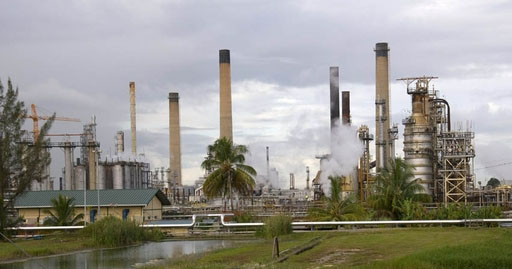Emma Ashford
Leif Wenar, Blood Oil: Tyrants, Violence, and the Rules that Run the World (Oxford University Press, 2015)
The oil magnate J. Paul Getty once described his formula for success: “Rise early, work hard, strike oil.” He could not have been more wrong when it comes to states with substantial endowments of natural resources. Too often the result of Getty’s prescription is not success but disaster: repressive autocracies, weak economies, corruption, violence, and war. The severity of these problems varies widely, from the repressive yet prosperous states of the Persian Gulf, to conflict-ridden states like Nigeria or Liberia, to massively corrupt and unequal nations like Equatorial Guinea — where, as one economist noted, “an opulent minority sails in a sea of misery.” Yet the common thread among oil-rich states is failure — institutional, governance, and economic — a set of maladies so ingrained in the popular imagination that oil-rich states are often described as “cursed.”
Leif Wenar’s Blood Oil prompts us all to think a little more closely about

